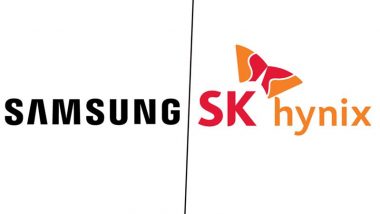
This year’s class is getting rich building a new generation of software that’s automating everything from how videos are filmed to how employees find documents on their work computers. T he 2025 Under 30 cohort was just coming into the world when the dot-com boom took the markets by storm. Now, these young founders have their own goldrush: the AI boom.
And they’re diving headfirst, raising billions of dollars to build companies with the potential to, one day, change how the world operates. That’s why, this year, Forbes decided to add a brand new category for AI. It’s necessary.

The technology is poised to change how we live, work, build and create–and the global market for artificial intelligence is projected to grow to $631 billion by 2028. Investors, who poured $27 billion into AI startups in the U.S.
from April to June alone, are actively pulling out their checkbooks and doling out mind-blowing valuations in hopes of backing the next Microsoft and Apple. Take Demi Guo , 26, and Chenlin Meng , 27 of Pika. The two founders have built tech that uses generative AI to turn plain text into a video.
Investors gave the first-time founders $135 million and valued their startup at nearly $470 million. Today, 5 million people are accessing their free app, which allows users to produce and edit videos across a number of cinematic styles. Although it might seem like Pika is out to replace the human touch, this year’s class is steadfast in showing that AI is a tool, not a substitute.
“The way I think about AI is really enabling our possibilities,” says Guo. “The human artist is a person to guide AI in the right direction and eventually become a masterpiece.” Guo and Meng join the other listmakers on the inaugural 2025 Forbes 30 Under 30 AI list, which showcases the talented young entrepreneurs and researchers who are shaping the new era of technology.
To be considered, all candidates had to be under the age of 30 as of December 31, 2024 and never before named to an 30 Under 30 North America, Asia or Europe list. Finalists emerged from hundreds of nominations and online submissions from a variety of sources like venture capital firms, universities and startup accelerators, as well as months of reporting conducted by list editors. Candidates were then evaluated by a panel of expert judges featuring Sarah Guo , founder and managing partner of venture capital firm Conviction; Joy Buolamwini , renowned computer scientist, digital activist and AI researcher; Raquel Urtasun , founder and CEO of autonomous trucking startup Waabi; and Winston Weinberg , Under 30 alum and cofounder of AI legal platform Harvey.
No doubt, editors were challenged in the making of this list. Every startup claims to be an AI company these days, so how do we decide who lands in this category? We looked at the folks whose jobs wouldn’t be possible without intelligence at its core. An example is Aidan Gomez , 27, who in 2019 cofounded Cohere, a startup that develops large language models and custom AI applications for hundreds of enterprise customers, including Oracle and Notion Labs.
Gomez launched the company with founding partners Nick Frost and Ivan Zhang after a stint at Google Brain, and the trio have since raised $940 million in funding at a staggering $5 billion valuation. 24-year-old cofounders Michael Truell , Aman Sanger and Sualeh Asif , along with Arvid Lunnemark , 25 , are building a “Google Docs for programmers” that more than 30,000 developers are using to more efficiently write and edit code. Foundry founder Jared Quincy Davis , 29, aims to address the compute shortage with his startup that provides AI builders access to cloud-based GPUs.
Former Tesla autopilot engineer George Morgan , 27, started Symbolica to develop AI model architecture alternatives that are more cost efficient and less error-prone. Meanwhile, several listmakers are focused on safeguarding artificial intelligence and empowering AI developers with security and model evaluation tools. Dan Hendrycks , 29, is the cofounder of the Center for AI Safety, which partners with AI companies and policymakers to help prevent catastrophic outcomes from AI.
Haize Labs, cofounded by Leonard Tang , 22, Richard Liu , 22, and Steve Li , 23, creates machine learning systems that “red team” or stress test AI models for vulnerabilities; the company’s models are used by Anthropic, OpenAI and Scale AI. Shena Revanur , 19, started Encode Justice, a youth organization pushing for safe and equitable deployment of AI. Its recent campaign, AI 2030, asks world leaders to endorse AI safety commitments such as banning fully autonomous weapons of destruction.
Other listers are working inside some of the world’s largest AI companies. Ethan Perez , 28, leads the adversarial robustness team at Anthropic, which focuses on curbing existential risks from AI. He was recently awarded for his research that showed debating with persuasive large language models can lead to more truthful answers.
At OpenAI, Jiayi Weng , 26, is a post training infra lead and one of the original ChatGPT team members. Weng has worked on subsequent iterations of the company’s chatbot, including GPT-4, GPT-4 Turbo and GPT-4o. These are just a few of the impressive listmakers on this year’s Forbes 30 Under 30 AI list , all of whom have collectively raised over $1.
8 billion. They are the folks writing the future of AI–that is, until AI can write it for us. The 2025 Under 30 AI list was edited by Rashi Shrivastava, Zoya Hasan, Sarah Emerson and Richard Nieva.
Be sure to read up on the members of AI list here , plus all of the other 30 Under 30 2025 categories here . 30 UNDER 30 RELATED ARTICLES.















